George Eldon Ladd Collection (7 vols.)
Digital Logos Edition
Overview
This collection features select works from George Ladd, whose writings on eschatology and New Testament studies represent a major contribution to evangelical scholarship. With careful and compelling scholarship, Ladd shows that the study of last things is not a purely futuristic enterprise. Rather, the work of Christ, culminating in his resurrection, ascension, and enthronement, has inaugurated an eschatological “already and not yet” tension in which Christians have already begun to experience the in-breaking of the latter days as a foretaste of the coming consummate kingdom of God.
In The Blessed Hope, Ladd distills scholarly research into a reader-friendly study of Christ’s second coming and the rapture that surveys differing views and presents the biblical testimony on the issue. In The Presence of the Future, Ladd presents a detailed case for the thesis that Christ has brought in the kingdom of God comes in two stages—inauguration and consummation. I Believe in the Resurrection of Jesus is Ladd’s able defense of that indispensable doctrine. In The New Testament and Criticism, he urges conservative Christians not to retreat from the academy and demonstrates that biblical criticism can be wielded for good. In The Pattern of New Testament Truth, Ladd shows how the diversity of the New Testament text can be taken seriously without undermining its fundamental unity and distinctness from the Greco-Roman worldview. In The Gospel of the Kingdom, Ladd revives a unified view of Scripture by presenting the Kingdom of God as the permeating theme of the Bible. And, in his commentary on Revelation, Ladd condenses his brilliant contributions on eschatology into a manageable guide to one of the most enigmatic books of the Bible. Glean from Ladd’s keen eschatological insights with these important volumes.
This title is included in the following collections
You can save when you purchase this product as part of a collection.
Logos 7 Reformed Bronze Legacy...
$89.99$89.99Logos 8 Reformed Silver Legacy...
$349.99$349.99Logos 7 Reformed Silver Legacy...
$349.99$349.99Logos 8 Reformed Gold Legacy L...
$849.99$849.99
- $849.99
- $1,499.99
- $1,499.99
- $2,999.99
- $2,999.99
- $2,999.99
- $4,749.99
- $4,749.99
- $4,749.99
- $4,749.99
- $11,399.99
- $11,399.99
- $21,749.99
- $24,999.99
- $37,403.33$27,999.99

- Classic works on eschatology from one of evangelical scholarship’s most significant contributors
- Presentation of Ladd’s influential “already and not yet” perspective on the New Testament
- Unified treatment of the New Testament around the theme of the kingdom
- Title: George Eldon Ladd Collection (7 vols.)
- Author: George Eldon Ladd
- Publisher: Eerdmans
- Volumes: 7
- Pages: 1,505
- Resource ID: {8FFA4766-79A2-49DA-8C34-05099A09FBE5}
- The Blessed Hope: A Biblical Study of the Second Advent and the Rapture
- The Presence of the Future: The Eschatology of Biblical Realism, rev. ed.
- I Believe in the Resurrection of Jesus
- The New Testament and Criticism
- The Pattern of New Testament Truth
- The Gospel of the Kingdom: Scriptural Studies in the Kingdom of God
- A Commentary on the Revelation of John
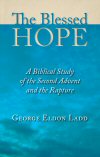
Jesus Christ is coming again! That is the Blessed Hope which has since the earliest days of the church energized biblical Christians looking for the full revelation of God’s redemption. But even among those who have most devoutly looked forward to the second coming of the Lord there have often been disputes about its nature. At their sharpest, these disputes can lead to the breakdown of fellowship among those who should be standing firmly together against unbelief. Through its many printings, this volume by George Eldon Ladd has proved to be a helpful guide for Christians who want to discern clearly the basic biblical teachings about the Blessed Hope. Writing not for his fellow scholars as much as men and women in the pews, Ladd, whose numerous studies of New Testament interpretation earned him the reputation of being one of contemporary evangelicalism’s leading thinkers, sketches the history of interpretations of Christ’s second coming and then carefully and lucidly examines the biblical passages on which this doctrine is based. Ladd’s conclusion is that the blessed hope is the second coming of Jesus Christ, not a pre-tribulation rapture of believers in a secret coming of Jesus. Yet he concludes, too, that there should be liberty and charity within the Christian community for all who hold to the expectation of “the blessed hope and appearing in glory of our great God and Savior Jesus Christ.”
No careful student of the Second Coming can afford to ignore his contribution to the subject.
—Ralph Earle (1908–1995), professor of New Testament, Nazarene Theological Seminary
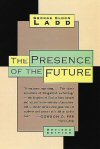
After surveying the debate of eschatology, Ladd discusses the promise of the kingdom, the fulfillment of the promise, and the consummation of the promise. Throughout the volume he develops his thesis that the kingdom of God involves two great movements—fulfillment within history and consummation at the end of history.
A welcoming reprinting . . . This classic exposition of ‘inaugurated eschatology’—the kingdom of God as both ‘already and not yet’ in the ministry of Jesus himself—should serve a new generation of students and pastors as it did an earlier one.
—Gordon D. Fee, professor emeritus of New Testament studies, Regent College
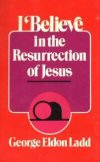
I Believe in the Resurrection of Jesus
- Author: George Eldon Ladd
- Publisher: Eerdmans
- Publication Date: 1987
- Pages: 156
With an attractive concision that doesn’t sacrifice scholarship, Ladd anticipates much of what N. T. Wright would later popularize in The Resurrection of the Son of God. Ladd both interacts with theories leveled against the resurrection and presents a historical case for its authenticity. He marshals compelling support for the resurrection by exploiting the weaknesses of alternative explanations of the historical data. He also demonstrates the impossibility of the idea of a resurrected messiah naturally arising from Second Temple Judaism. This is a well-informed and carefully argued case for the resurrection.
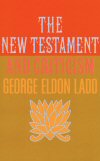
One unfortunate consequence of the bitter fundamentalist-modernist controversy which raged in the early twenties has been the strongly negative attitude toward biblical criticism assumed by some of the successors to the fundamentalists of the 1920s. Such people, according to Professor Ladd, insist that the critical method is basically hostile to the evangelical faith, and they have continued to oppose any use of it. Others, however, claiming the same heritage, believe that the orthodox interpretation of the Gospel can be defended positively and constructively only with the aid of a sound critical method and the results of critical scholarship. The author believes that an evangelical biblical criticism is not only possible but necessary. The central thesis of his book is that “the Bible is the Word of God given in the words of men in history,” and as such its historical origins must be reconstructed as far as possible. In this way a richer understanding of the Scriptures can be achieved. The New Testament and Criticism provides the serious student of the Scriptures with valuable guidelines for such an understanding.
Ladd has done well what he set out to do: to show those on the right the values to critical study and to give pause to some on the left in their methodology.
—Interpretation
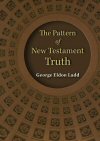
George Eldon Ladd here addresses the problem of differences and similarities in the theologies of the New Testament writers, and seeks to show in this examination what he calls “the pattern of New Testament truth.”
The author argues against an overemphasis on Gnosticism in the study of the background of the New Testament. Ladd then goes on to consider a philosophical movement, prevalent during the first century, about which much more is known—Greek dualism, especially as expressed by Plato, Plutarch, and Philo. He points out the differences between Greek and New Testament thought, and goes on to contrast the Greek view of reality with that of the Hebrews, which he concludes to be essentially that of the New Testament.
The unity of the New Testament, Ladd believes, is to be found in the Heilgeschichte, the record of the historical dealings of God with man. The diversity between the Synoptics (Matthew, Mark, and Luke), John, and Paul is a result of different perspectives from which this redemptive event of God is interpreted. A chapter is devoted to each of these viewpoints, giving a detailed analysis of the unity and diversity that manifests itself, and demonstrating that differences are a matter of separate strata or levels of theology rather than of conflicting suppositions.
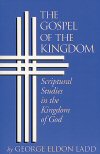
In The Gospel of the Kingdom Ladd gives a clear and practical explanation of the central message of Jesus’ ministry for the general reader. Avoiding technical discussions and long arguments about issues of interpretation, Ladd has instead sought to explain the Kingdom of God and the urgency of its meaning and message for our own time. Ladd’s study of Jesus’ parables and the Sermon on the Mount is as devotional as it is instructive. Few will read this volume without becoming deeply convicted. In the words of Oswald J. Smith, Ladd’s explanation of the concept of the Kingdom of God will “make the Bible a new book.”
This is a first-rate piece of work and deserves a very large circulation. Dr. Ladd has set himself here to make the subject plain to the nonspecialist Christian reader. In my judgment he has succeeded. I feel sure that the interested reader . . . will feel grateful to Dr. Ladd for guiding him step-by-step to a clearer understanding of the biblical teaching about the Kingdom of God.
—F. F. Bruce (1910–1990), Rylands Professor of Biblical Criticism and Exegesis, University of Manchester
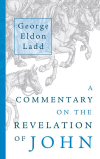
Revelation is at once the most difficult and most intriguing book of the New Testament. The complexity of the scholarly questions concerning its interpretation is matched only by the fascination Revelation evokes in modern-day Christians and by their ongoing interest in what this mysterious book actually proclaims regarding the future of the church and of humankind.
In this widely praised exposition of Revelation, George Eldon Ladd treats the Apocalypse as a true prophecy—one that reflects the situation of the church when the book was written as well as the situation the church will face at the time of the consummation of God’s redemptive plan.
Beginning with a brief introduction, Ladd discusses the subject of authorship, the date and historical setting of Revelation, and the various methods of interpretation (preterist, historical, idealist, and futurist) that have been applied to the book throughout history. The introduction is followed by an analytical outline of Revelation’s structure and Ladd’s verse-by-verse commentary. The entire work is marked by Ladd’s sensitivity to the needs of both general readers and scholars and by his concern for proclaiming the message of Revelation for our time.
Ladd has an amazing ability to explain simply and clearly something that is complex and opaque. He writes on the mysterious and complex Apocalypse lucidly, thoroughly, and very readably. . . . A very valuable interpretative aid to laypersons, pastors, and scholars alike.
—Christianity Today
This study merits several adjectives: careful, thorough, candid, lucid, discriminating. . . . A genuine achievement.
—Interpretation
Readers will find new insights into this difficult book and will profit by a careful reading of this commentary.
—Bibliotheca Sacra
George Eldon Ladd (1911–1982) was a Baptist minister and New Testament scholar. Born in Alberta, Canada, Ladd was educated at Gordon Divinity School (now Gordon-Conwell Theological Seminary) and Harvard, where he received his PhD in classics under preeminent New Testament scholar Henry J. Cadbury. Ordained in the Northern Baptist Convention in 1933, Ladd pastored three churches in New England for nine years. From there he went on to teach New Testament at Gordon and at Fuller Theological Seminary, where he taught New Testament for 30 years.
Reviews
6 ratings

Claybon Collins Jr
1/4/2021
Eric Hake
11/15/2020

M. David Johnson
3/27/2015
Curtis Dubreuil
10/28/2014

Eugene Oleson
8/20/2014
Saviour k Apedoh
8/20/2014

Ian Carmichael
12/19/2013
Shame the 'Theology of the New Testament' is not included. Then I WOULD be paying close attention!